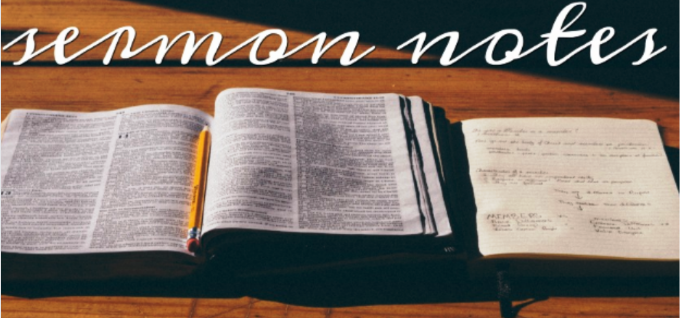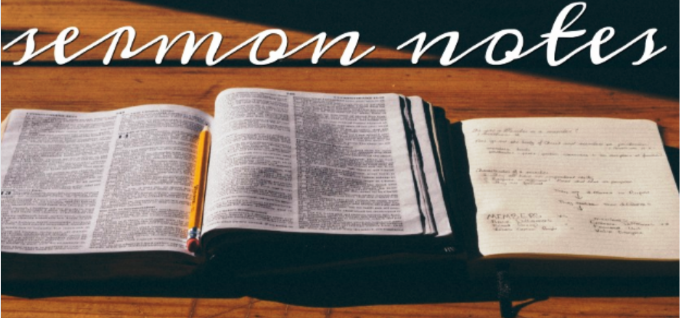
“Mom Always Liked My Evil Twin Brother Best!”
Father Peter Fitzgibbons
November 18 – 19, 2023
Gospel: Matthew 25:14-30
In your charity, please pray for the repose of the soul of Reverend Father Brian Cook. Father Cook was a retired priest in our diocese, and he passed away this morning. In the past two weeks, we have had two retired priests die which tells me I shouldn’t retire. This retirement thing can get really dangerous!
The weather was nice the other day, so I took a walk and actually found my way back. . . shocking! I went by Will’s Place, and they were having their grand opening that night. Before the renovation, the building was in such rough shape that it needed a match. It was a horrible place. But they did a wonderful job with the renovation, and now it is a beautiful, beautiful place. There is a treatment area for substance abuse including alcohol and drugs. It is a place where those who suffer and carry that cross can get help carrying it. I was given a tour, and they even have a puppy there.
I was thinking about the Knights of Columbus and the help they provide to the Pregnancy Resource Center. That’s what I like about our parish. I won’t tell you how to spend your money whether it’s on Catholic Social Services or the Campaign for Human Development and all that stuff. Because when your money leaves the parish, everybody takes a cut here and a cut there for shipping and handling, know what I mean? Buy this product for just $20.95 plus $35.00 shipping and handling. Yeah right! The good news is you get a lot of packing material in a box from Amazon. Everything we do here goes to our friends, families, and neighbors. There are so many organizations in Stanly County that help people in need. The Stanly Foundation at the hospital provides free mammograms to those who cannot afford them. Stanly County Christian Ministries has a Clothing Closet, a Food Pantry, and a Community Table that the Knights of Columbus help. There is also the Pregnancy Resource Center and Will’s Place. There are all sorts of wonderful organizations to help people. We take care of our own, and that’s what is so wonderful. We take care of our poor and sick. So, I want to thank you all for that.
My undergraduate degree is in Philosophy. One of the best courses I ever took was Philosophy 101. I even loved the final exam although it took me three hours to complete it. But it was a fun course because it taught us how to argue, create positions, and defend them properly. We learned how to pick out words and throw the “BS” flag. One idea that has crept into theology, which should never have happened, is “We have to be inclusive.” You hear that in the synod of synodality which is an oxymoron term. One thing about the synod of synodality is that people have positions, and they speak using big fancy words. “Wow! You are really educated.” No, because the words they are using don’t make sense. “The Church needs to be more inclusive.” That sounds like a really great bumper sticker. The trouble with that statement is that on its face, it is blasphemy, and if you really believe the statement is true, it is heresy. “The Church must do this.” Well, what is the Church? Good answer. You’ve learned well. The Church is not a “what;” it’s a “Who.” What does Paul say in the Book of Acts? The Church is the body of Christ. Our Lord said, “Paul, Paul, why do you persecute Me?” (Acts 9:4). So, if the Church is Christ, are you telling me that Christ is not inclusive? Does He have conditions? Yes, He has conditions. So, you are trying to tell Christ what He should be. Good luck with that. Some people are educated way beyond their abilities, and our Lord talks about them in the Parable of the Talents.
Christ called everyone. “Come to me, all you who labor and are burdened, and I will give you rest” (Matthew 11:28). However, He did set some ground rules: “Take up your Cross and follow Me” (Matthew 16:24). Turn your back on your mother and father (Genesis 2:24-25). Sell your possessions, theologically speaking (Matthew 19:21). Eat My flesh and drink My blood (John 6:54). One man and one wife, male and female . . . He made us, so He knows what He is talking about (Matthew 19:9). Anybody who says, “The Church must be more inclusive” is trying to change the Deposit of Faith, a gift from God Himself and our means of salvation.
I was supposed to go to the Bishop’s Advent dinner, but I had other plans that precluded my going to Charlotte for the dinner. It’s distressing for me personally to see all these priests who are so talented, and I think, “My God, how talented they are! I’m not.” One priest, who is about to retire, speaks five languages and has two Ph.D.’s. Show-off! I speak five languages at the Spanish Mass. I can’t tell you which ones they are because they are all mixed into one language. Another priest has built two churches, one was a missionary, and another was a professor at seminary. I don’t visit other priests very often because I hate Charlotte almost as much as I hate fish. When I go there for my dental appointments, I wish I had a few of my friends in the back seat locked and loaded. Albemarle Road is terrible. We left pieces of Iraq in better shape after we bombed the you-know-what out of it.
My mother loved seafood, but it was difficult to persuade her to go all the way to Newport for dinner. Rhode Island has only 1045 miles of land mass, and if you take away the islands, it has even less. Going to Newport is like going to Charlotte, so it’s not a big deal. “Mom, do we need to pack a lunch?” That is small New England village mentality. We wanted to get some lobster for my mom, so my evil twin brother, who was a scuba diver, went diving in the bay and brought her fresh-from-the-sea lobster. You can’t get fresher than that, especially for the price. He also had two Ph.D.’s. Show off! Mom always liked him best anyway. Although I dislike administrative work intensely, the one talent I have is that I can do hospital work very well. When I go to the hospital with some of my fellow priests and they see and smell the sights and sounds of a trauma center, they gag. Want to grab lunch later? “No!” What’s wrong? I’m buying. Wanna play ball scarecrow? It’s hilarious.
There is no need to be jealous of the talents and abilities other people have which is something I keep telling myself, and I hope to do better. All those talents and abilities are meant to be used for one thing . . . to share with others. The one talent we all share, and the most important one, is the gift of faith. You all have it because you are here. Faith is the most important talent and the one in which our Lord will judge us. How do we bring that gift of faith to others? By our words and example. How do we keep it alive? By the Sacraments and penance. How do we bring it to others? By word and deed or corporal and spiritual works of mercy. All of our other talents are based on that. Otherwise, they will never develop the way they should and be used for their proper purpose which is for the glory of God and the salvation of souls. Every talent is given to us for the glory of God and the salvation of souls. The people in our parish, I will say with all humility, are blessed with an abundance of talents and abilities. We are better than any other parish in the diocese regarding the talents and abilities we have here. But the most important talent or ability, and the one that provides focus on them all, giving them meaning, purpose, a goal, and a reason to exist is the gift of faith.
So, use your talents. As I grow older, getting up from a chair can be difficult. My mind writes checks my body can’t cash. That’s a talent, you know why? Because I can offer up my suffering for the salvation of souls, the glory of God, an act of penance for myself, and an act of humility which I really need. We all have talents, but the best talent of all is the gift of faith. He won’t ask me if I built churches or if I can speak five languages. I can barely speak English. However, He does ask me to be a conduit of His love to other people. That’s how God will judge us . . . how we brought His gift to others.
How will you apply this message to your life? _______________________________________
You can read all of Father Fitzgibbons’ sermons by going to annunciationcatholicalbemarle.com and clicking on “Blog” then “Categories” then “Sermon Notes.” On a cell phone: click on “Blog” and then “Menu.” Scroll to the bottom and click on “Categories.” Sermon Notes are also available on the Church’s Facebook page at ola.catholic.church. Click on “Groups” and then “Sermon Notes.”






